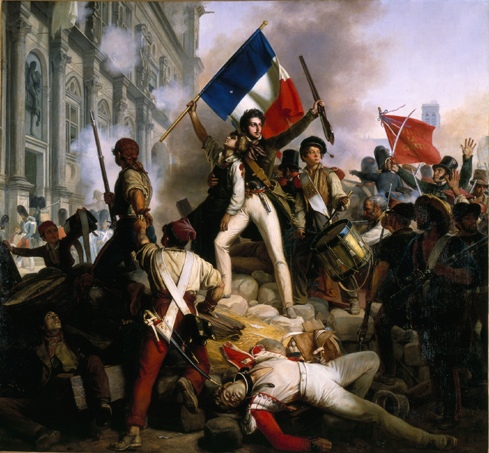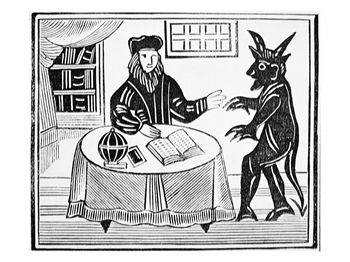Outline
I. Introduction
a. early life
II. Farm Life
a. beginning of the farm
b. livestock, machinery, and chores
c. the process of dairy farming
d. family stories
III. Conclusion
a. bibliography
Through the years, Dairy Farming has always been a difficult and labor intensive career. The number of active Dairy Farms in Maine is dwindling, and it is important to save the legacy of the farms from the past. Here is the story of the Clifford Dairy Farm.
I asked my mother, Betty Wright to tell me about my ancestors, since I know so little about them. It was amazing what she told me.
My grandmother’s full name is Mildred Lydia Nurmi Clifford, usually called Mildred or Millie by her friends. She was born on May 21, 1923 and was raised at 50 Roosevelt Street, Innwood Long Island, New York. There were four children: Helen (a half-sister from Axel's – her father’s first marriage), Lauri (pronounced loud-ie), Grammy and Paavo, her youngest brother. All are of Finnish descent. Mildred’s mother’s name was Lydia Nurmi. As a first generation immigrant, Mummu (which means grandmother in Finnish) arrived from Finland on a boat to be a housekeeper, thereby paying for her passage. She married Axel Nurmi, my great-grandfather, a carpenter by trade.
Mildred grew up in a place named Innwood, a suburb of New York City. She attended Public School number two in Innwood for grades Kindergarten through grade seven; Lawrence for eighth grade and a new Lawrence High School for grades 9 through 12. From September to November of 1941 she attended Browne's Business School in Jamaica, Long Island, taking secretarial classes. From 1944 to 1947 she attended Providence Bible School in Rhode Island.
After she finished those classes in 1941, she kept books for a dentist named Dr. Pinto during the summer. She then ended up with more responsibility than handling receipts, however; she also mixed amalgam (an alloy of mercury with another metal or metals) and acted as assistant to Dr. Pinto also. On December 29, 1941, she began commuting by train to the City to work for Wilson Fastener Company. On May 20, 1942, she started working for Piquot Mills, which took her to the 29th floor of the Empire State Building every day. This is back when New York was at its Golden Age.
Her Bible school training changed the direction of her life; in the summer of 1947 she took summer Bible School in Stowe, New Hampshire. She learned to drive and accepted a job in 1947 as a rural Bible Schoolteacher in Maine, traveling to the local one- room schoolhouses (Unity, Troy, Dixmont among them) to teach children their Bible stories. As a result of her life as a farmer's wife and mother of five children, Mildred learned to cook and bake, sew and can garden vegetables. She loves to play the piano (since girlhood) and sing in the choir. At her college recital she played Liebestraum, which she learned by heart and continued to play for her children, a beautiful and moving piece composed by Franz Liszt. All of her life she has maintained a Christian outlook. All of her life, she has never lost her temper, spare only once, and that was a long time ago.
My Grandfather’s name is Charles Lovell Clifford, born June 17, 1923 at Greene's Corner in Troy, Maine. Troy has been his home all of his life, though his family moved from Greene's corner to Roger's Corner and after he and my Grandmother were married, they lived on Barker Hill Road and then on Troy Center Road where they remain to this day. Known as Charlie, he had an older brother James Oscar Junior, who died early in life from tuberculosis; another older brother Stanley Lewis, who was killed by a robber attempting to hold up the gas station which Stanley managed in Florida, and a younger sister, Dora Letha, who lives in Monroe, Maine with her family.
Charles went to school in one of the five one-room schoolhouses in Troy; he attended Greene's Corner Elementary for grades one through eight (no kindergarten was offered). Grades nine through twelve took him all the way into the next town, to Unity High School (where Betty eventually went to Junior High). After high school, Charles worked on road crews for the Maine State Highway Commission but quickly decided that this was definitely not the life for him. Bosses who sat around all day while the workers worked like crazy just didn't seem right and was not tolerated for very long.
On October 12, 1947, Columbus weekend, fate struck. Mildred was staying with Betty and Tom Hawkswell while teaching Bible school; she attended a funeral for a friend, Bill Barnes, who lived across from Josey Rogers (and across the street from Charles’s parents). Who else should attend the funeral but Charles himself, which is how these two met. Later, on January 30, 1948, it was thirty below zero and Mildred’s gas line froze on her car, leaving her stranded. Charles came to get her and she ended up staying over at Charles’s parent's house. Well, on April 8, 1948, Mildred got her engagement ring and they were married June 5, 1948 at the Burnham Baptist Church, chosen because of its center aisle since both Mildred and Charles are Protestant.
Charles and Mildred started their life together on a small farm on Barker Hill Road in East Troy. They had one cow, a few sheep and a pretty little cocker spaniel named Goldie - no electricity or indoor plumbing. Their firstborn, Paul Lovell, arrived on May day 1949, followed by James Lawrence (April 3, 1950), then Nancy Lydia (July 16, 1951), my mother, Betty Lynda (December 9, 1955) and Stephen Lee (July 28, 1960). The summer of 1955 took the family from their farm in East Troy to a larger one on Troy Center Road, actually three old farms, now combined into one. The two story farmhouse, attached timber frame horse stable and dairy barn were where Betty was born and raised. The one herd dairy cow farm begun in 1948 became a two hundred head farm with the help of five strong children. Charles worked very hard over the years, raising the animals and crops, such as wheat, hay, and corn for the animals. They always had a big garden to help feed the family and a few apple trees scattered around the farm for fall picking. Charles loved the outdoors and through necessity, became a skilled mechanic, carpenter, plumber, electrician, herdsman, veterinarian, and any other trade required to keep the farm and home. He always loved horses and has a good eye for horses; before the use of tractors he kept teams for running the farm and pulling out pulp from the woods during the winter months. They had several ponies, beginning with the old black and white pony Tony. Charles also loved family picnics and country music. He always held the attitude that it was best to buy the best, then treat it well and make it last as long as possible. This philosophy stood him well and was passed on to his children - good advice and a good way to live. Charles always administered the discipline in the family, and a sound spanking was in order a few times, usually as a result of some dangerous action that had to be nipped in the bud, but occasionally for something that got his goat, like not getting up in the morning when the work was waiting or being just as hard-headed as he was. Being opinionated and stubborn probably held Charles Clifford in good stead through a lot of hard times.
While talking to my grandfather, Charles L Clifford, he reminisced about all the machinery and chores that had to be done while his farm was still up and running. Sometimes, he didn’t have much to say, but he really is a highly opinionated man.
He claims that in the highest days of his farm, he owned around one hundred – seventy or so Holstein mixed with Jersey dairy cows. As well as this, he owned chickens, geese, pigs, and a small pony for his daughters Nancy and Betty to ride. Betty recalls that she owned three while she lived on the farm, one named Star, one Tony, and one Bobby.
As for the equipment he owned, he is sure that he must have owned at least two large tractors, a hay rake, a bailer, a manure spreader, and an old farm truck.
Larger animals, such as pigs and dairy cows were considered the men’s job. Charles, Jim, Paul, and sometimes Steve (if he was old enough at the time) would go out into the fields at first daybreak and begin their loading of bails onto the truck. This of course was extremely hot, sweaty work, and under no circumstance was a women asked to do this job. Betty wanted to come along, and even if she was allowed, she had to sit inside the truck and listen to the radio. Her older sister, Nancy was usually off doing her own thing, and her mother Mildred usually occupied her time with reading hymns and praying.
In the morning, around four o’clock or earlier, the boys would be woken up to milk the cows, before every school day. If they didn’t have to go to school, they would be set to work doing other various chores, such as the pig sty, or bailing hay, if need be. Milking cows in the bitter cold is a very tedious job, day after day, in the pitch black of the morning.
The smaller jobs were left to the women. Such as tending to the chickens and picking the vegetables from the garden. House cleaning was also viewed as a ‘woman’s job’, so Mildred spent most of her time inside.
Dairy farming today is very different then the way that it was done on the Clifford farm. The actual obtaining of the milk is not a very difficult process; however keeping your livestock alive and healthy is a costly and tiring job. Out of the one hundred and seventy cows they did own, only one hundred were mature and milk producing. A healthy cow will produce somewhere around six to seven gallons of milk each day. That’s seven hundred gallons of milk every day, which needs to be pumped, refrigerated and shipped off to market. Imagine waking up before the sun even rose to pump with your hands seven hundred gallons of milk.
After the boys had woken up, they would (most likely) dawn their coats and jackets and head off to the barn, where the cows would be tied up by their necks in separate milking stalls. The milk is withdrawn from the udder using a pulling and squeezing motion. Once the milk is acquired, it must be refrigerated. It could be put in a “milk tank”, where the milk is continuously cooled by a doubled walled system, where cooling coils fill the space above and around the milk.
Farm Life, family stories.
Over the years my mother, Betty has told me many stories of growing up on the farm with her brothers and sister. Some of them are quite funny, while others are unnerving. However, these are stories, which if not written down, will vanish over time. Some of these stories, the participants may not want to be told; (you’ll see what I mean once I tell you). Anyway, here is the first story that comes to mind.
“the Apple Tree”
It was fall, and my mother was a young girl. She and her older brothers Jim and Paul decided to go out into the field and pick some apples, although this was a difficult task since the apples were up high and hard to reach. So, they took their pony along with them, and walked out to the apple tree. Once they go there, Jim and Paul climbed their way up into the tree and began shaking the branches, trying to get the apples to fall. My mother was standing beneath the tree, next to her pony. Unexpectedly, an apple fell onto Bobby’s (the pony’s) hind quarter’s and startled her, sending her running through the manure – covered pasture. My mother, startled as well became tangled on the cart which the pony had carried. Bobby didn’t mind of course, and galloped across the field, thoroughly drenching her in mud and manure. She recalled that later, her father Charles had taken her into the shed and sprayed her down with ice cold water from the hose.
“the Fire”
Betty was in her college years, and had been gone off to school, away from the farm. Her brothers, Jim, Paul, and Steve were out working in the fields. When they returned one afternoon to their farm house, it was ablaze. They could save nothing from it. Later, they built another farmhouse nearby, but by that time most of Charles’s and Mildred’s children had already gone off and started lives of their own.
“the Blueberry Jar”
The names in this story are to be untold, since disclosing them may lead to embarrassment. Well, the story goes like this. Mildred, my grandmother had a bunch of jars of canned blueberries. It was mid-winter, and the boys (I won’t say which ones) were hankering for from fresh fruit. Of course, being young boys as they were, had a clever idea. They snuck down into the cellar were the blueberries sat, and opened a jar. After eating the entire jar of berries, they began to panic. What would they do with the jar? If Charles found out, they would get a spanking. So they schemed, and came up with yet another clever idea. They both needed to use the bathroom. What if they went in the jar, and passed it off for kerosene? After slipping the jar amongst the other kerosene jars, they snuck up the stairs. Later that day, Charles came downstairs to light a fire. Taking the jar, he opened it, to discover it had a peculiar odor. Knowing very well what had happened, and that it was not, in fact kerosene, he went upstairs and gave the boys a proper punishment.



